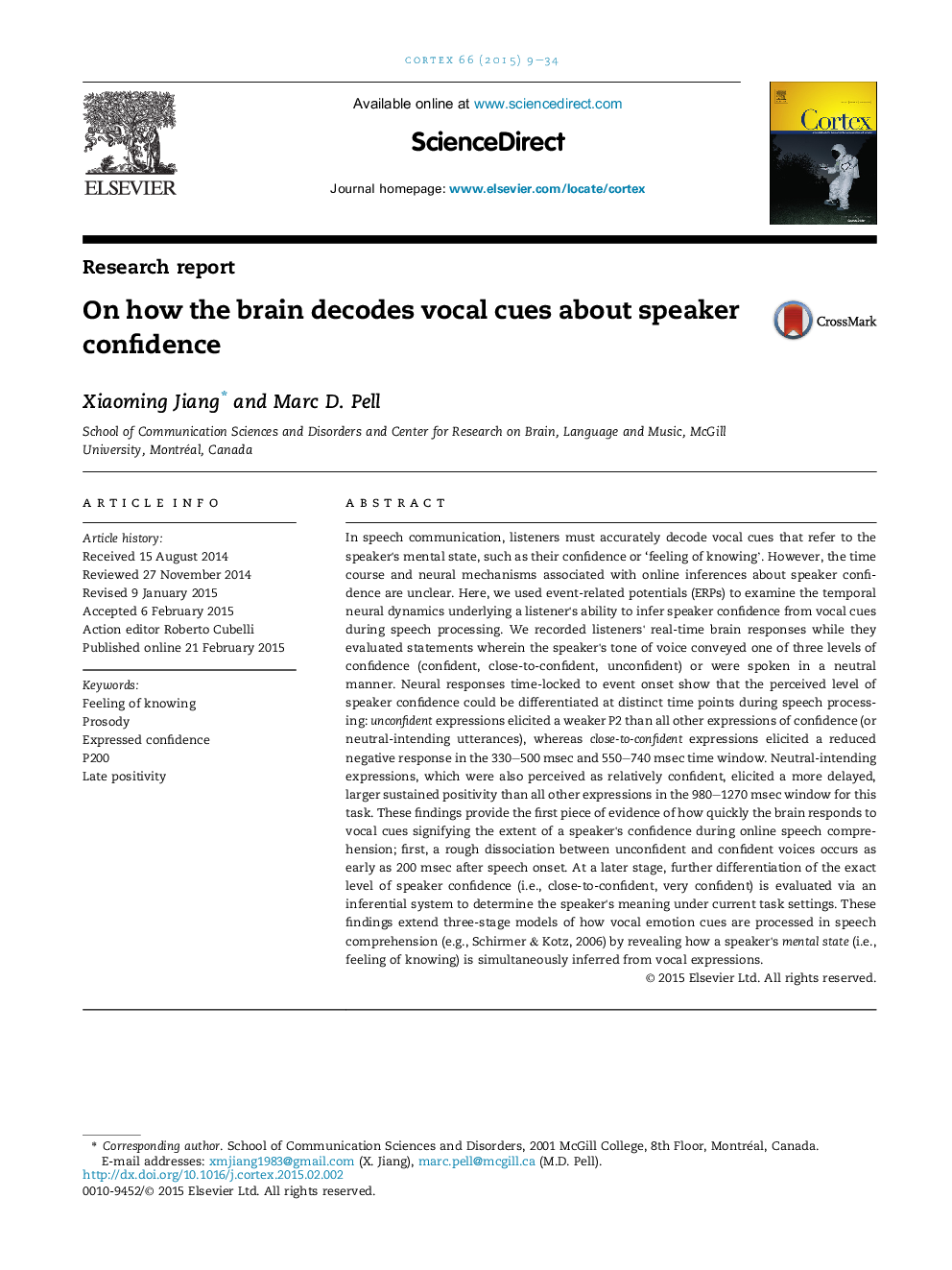| کد مقاله | کد نشریه | سال انتشار | مقاله انگلیسی | نسخه تمام متن |
|---|---|---|---|---|
| 7314578 | 1475466 | 2015 | 26 صفحه PDF | دانلود رایگان |
عنوان انگلیسی مقاله ISI
On how the brain decodes vocal cues about speaker confidence
ترجمه فارسی عنوان
در مورد چگونگی تفکر مغز در مورد اعتماد بلندگوها
دانلود مقاله + سفارش ترجمه
دانلود مقاله ISI انگلیسی
رایگان برای ایرانیان
موضوعات مرتبط
علوم زیستی و بیوفناوری
علم عصب شناسی
علوم اعصاب رفتاری
چکیده انگلیسی
In speech communication, listeners must accurately decode vocal cues that refer to the speaker's mental state, such as their confidence or 'feeling of knowing'. However, the time course and neural mechanisms associated with online inferences about speaker confidence are unclear. Here, we used event-related potentials (ERPs) to examine the temporal neural dynamics underlying a listener's ability to infer speaker confidence from vocal cues during speech processing. We recorded listeners' real-time brain responses while they evaluated statements wherein the speaker's tone of voice conveyed one of three levels of confidence (confident, close-to-confident, unconfident) or were spoken in a neutral manner. Neural responses time-locked to event onset show that the perceived level of speaker confidence could be differentiated at distinct time points during speech processing: unconfident expressions elicited a weaker P2 than all other expressions of confidence (or neutral-intending utterances), whereas close-to-confident expressions elicited a reduced negative response in the 330-500Â msec and 550-740Â msec time window. Neutral-intending expressions, which were also perceived as relatively confident, elicited a more delayed, larger sustained positivity than all other expressions in the 980-1270Â msec window for this task. These findings provide the first piece of evidence of how quickly the brain responds to vocal cues signifying the extent of a speaker's confidence during online speech comprehension; first, a rough dissociation between unconfident and confident voices occurs as early as 200Â msec after speech onset. At a later stage, further differentiation of the exact level of speaker confidence (i.e., close-to-confident, very confident) is evaluated via an inferential system to determine the speaker's meaning under current task settings. These findings extend three-stage models of how vocal emotion cues are processed in speech comprehension (e.g., Schirmer & Kotz, 2006) by revealing how a speaker's mental state (i.e., feeling of knowing) is simultaneously inferred from vocal expressions.
ناشر
Database: Elsevier - ScienceDirect (ساینس دایرکت)
Journal: Cortex - Volume 66, May 2015, Pages 9-34
Journal: Cortex - Volume 66, May 2015, Pages 9-34
نویسندگان
Xiaoming Jiang, Marc D. Pell,
